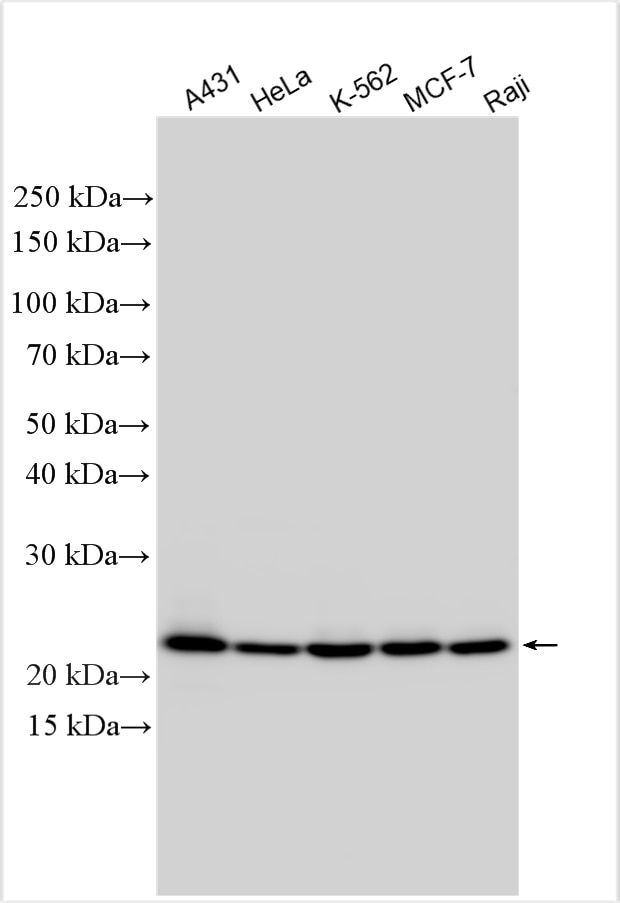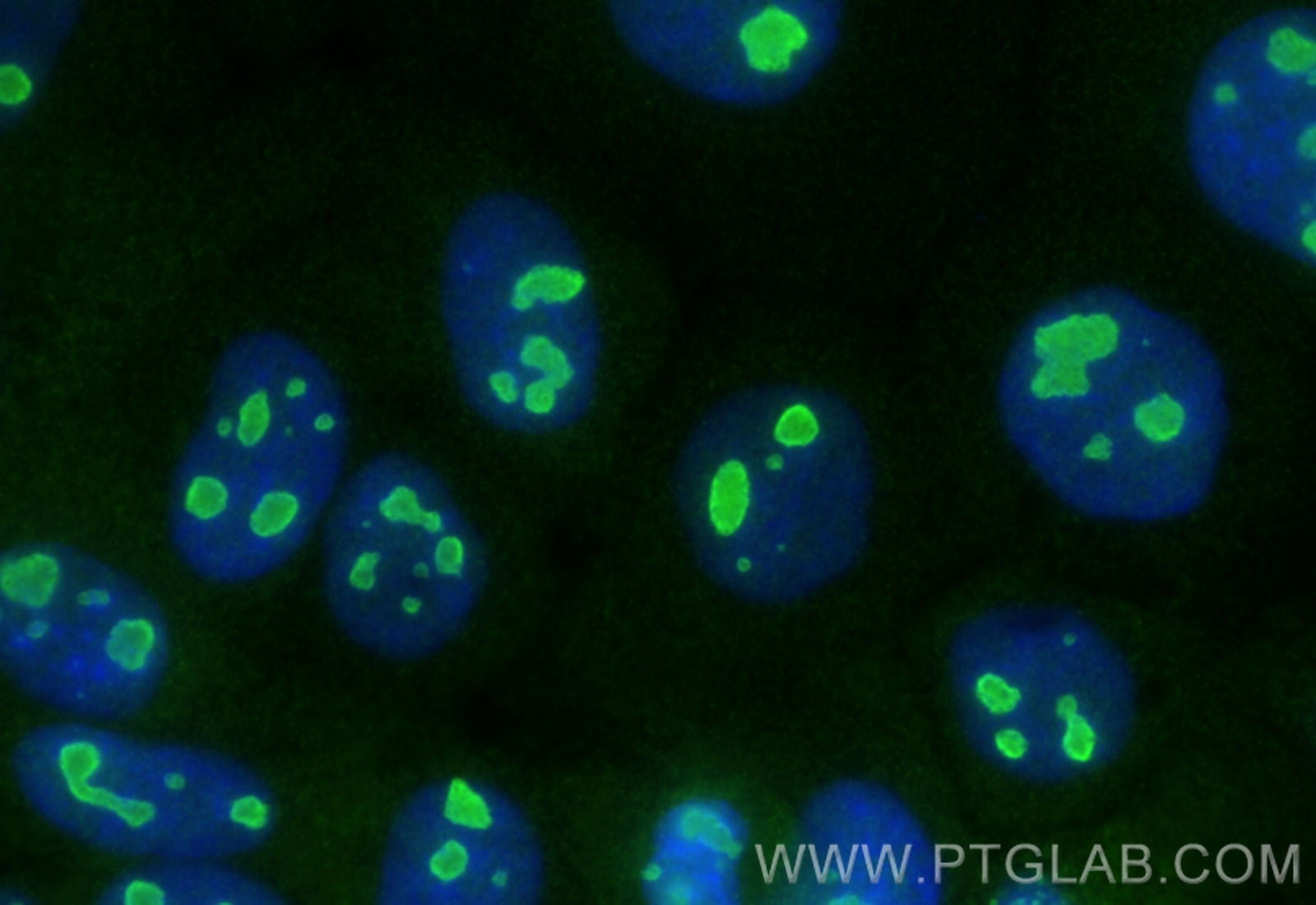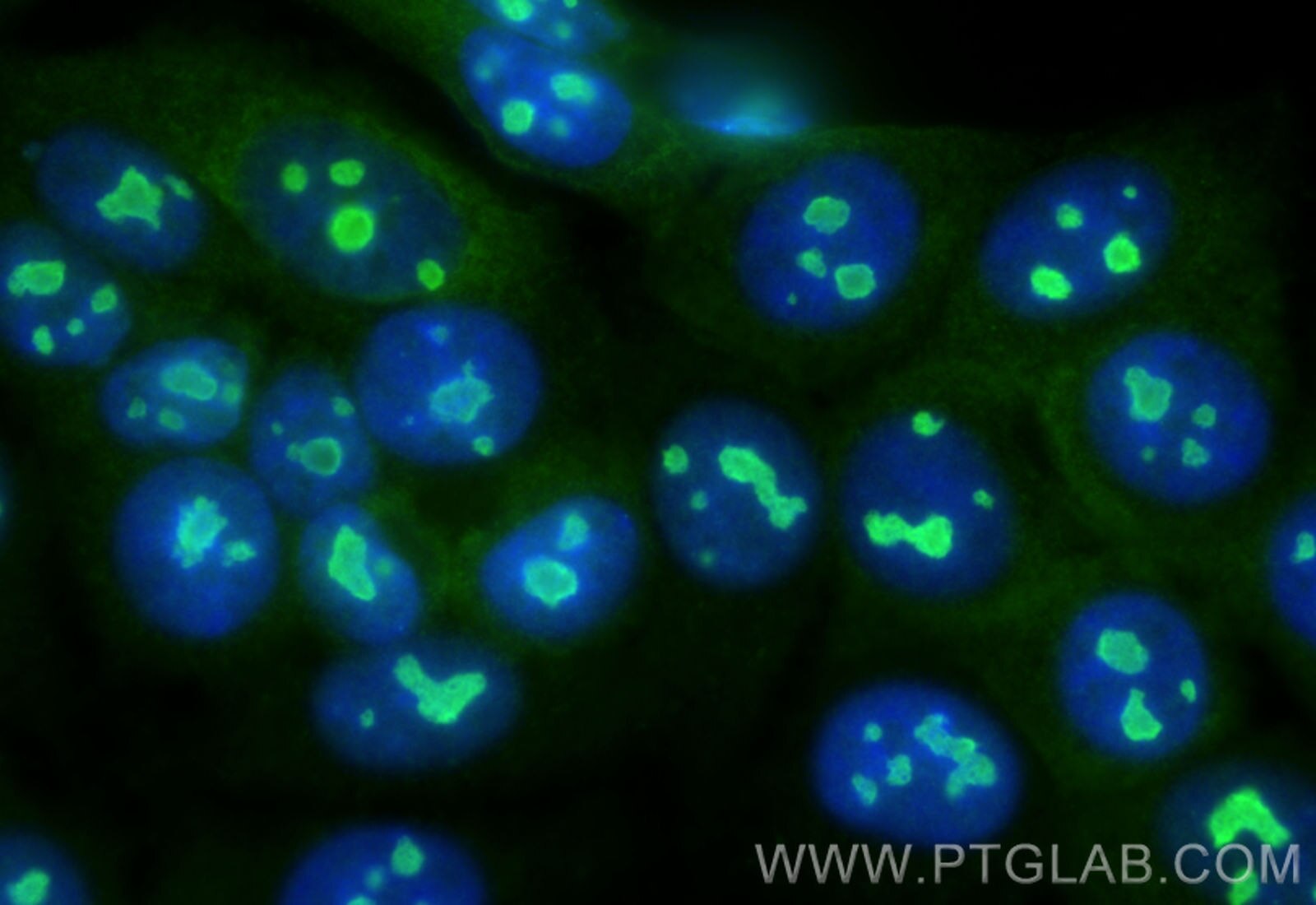Tested Applications
| Positive WB detected in | A431 cells, Hela cells, K-562 cells, MCF-7 cells, Raji cells |
| Positive IF/ICC detected in | A431 cells, MCF-7 cells |
Recommended dilution
| Application | Dilution |
|---|---|
| Western Blot (WB) | WB : 1:5000-1:50000 |
| Immunofluorescence (IF)/ICC | IF/ICC : 1:200-1:800 |
| It is recommended that this reagent should be titrated in each testing system to obtain optimal results. | |
| Sample-dependent, Check data in validation data gallery. | |
Product Information
31969-1-AP targets NOP16 in WB, IF/ICC, ELISA applications and shows reactivity with human samples.
| Tested Reactivity | human |
| Host / Isotype | Rabbit / IgG |
| Class | Polyclonal |
| Type | Antibody |
| Immunogen | NOP16 fusion protein Ag36714 Predict reactive species |
| Full Name | NOP16 nucleolar protein homolog (yeast) |
| Observed Molecular Weight | 23 kDa |
| GenBank Accession Number | BC040106 |
| Gene Symbol | NOP16 |
| Gene ID (NCBI) | 51491 |
| RRID | AB_3670160 |
| Conjugate | Unconjugated |
| Form | Liquid |
| Purification Method | Antigen affinity Purification |
| UNIPROT ID | Q9Y3C1 |
| Storage Buffer | PBS with 0.02% sodium azide and 50% glycerol, pH 7.3. |
| Storage Conditions | Store at -20°C. Stable for one year after shipment. Aliquoting is unnecessary for -20oC storage. 20ul sizes contain 0.1% BSA. |
Background Information
NOP16, also known as HSPC111, is found in the intracellular protein complex. It is a ribosomal protein that is transcriptionally regulated by the oncogene c-Myc. NOP16 may be involved in the completion of ribosome synthesis, therefore, reduced NOP16 expression in cancer cells may block many biological processes. Studies indicate that NOP16 is highly expressed in more than 20 types of cancers, including colorectal, breast, and hepatocellular carcinoma, and is an important target for clinical treatment of related diseases.
Protocols
| Product Specific Protocols | |
|---|---|
| WB protocol for NOP16 antibody 31969-1-AP | Download protocol |
| IF protocol for NOP16 antibody 31969-1-AP | Download protocol |
| Standard Protocols | |
|---|---|
| Click here to view our Standard Protocols |







